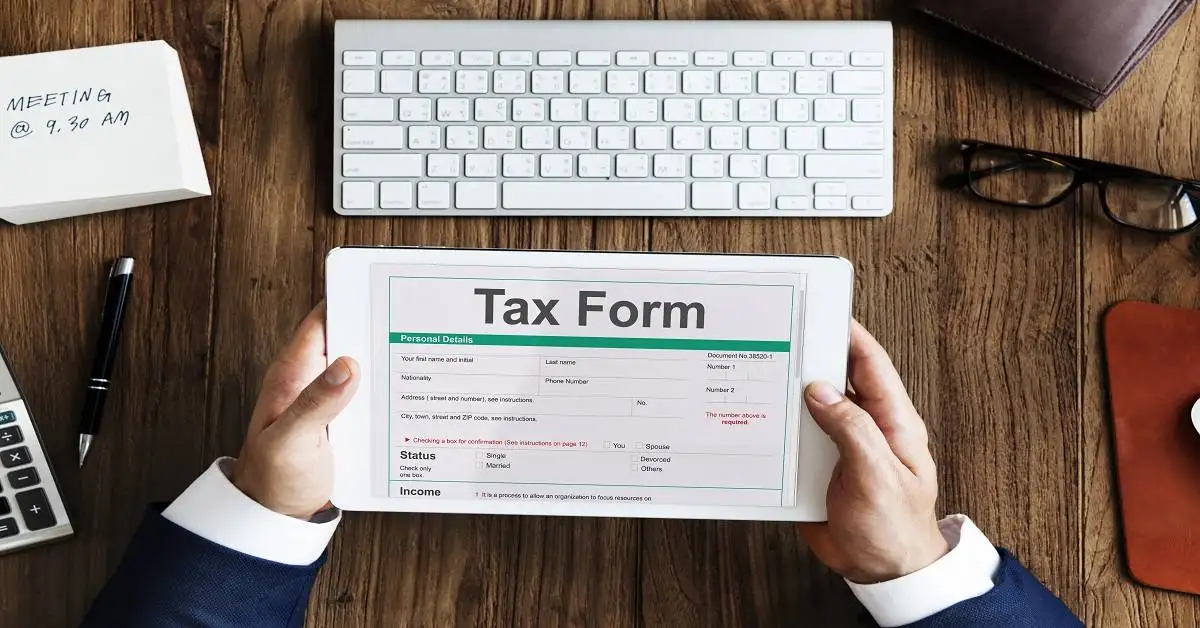
Estate planning is a crucial aspect of securing one’s assets and ensuring a smooth transition of wealth to the next generation. In this blog, we delve into the intricacies of estate planning, with a particular focus on the pivotal role of wills and power of attorney. These legal instruments play a significant role in shaping the destiny of one’s estate, and a comprehensive understanding is essential for effective planning.
Wills and power of attorney are fundamental components of estate planning, each serving distinct yet interconnected purposes. A will, at its core, is a legal document that outlines an individual’s wishes regarding the distribution of their assets after death. This ensures that their estate is handled according to their desires, providing a sense of control and security.
On the other hand, a power of attorney is a legal authorization granted to a designated individual, known as the attorney-in-fact, to make decisions on behalf of the grantor. This can extend to financial matters, healthcare decisions, or both. The significance lies in the power to manage affairs seamlessly, especially in the event of incapacitation.
As we navigate through the intricate landscape of estate planning, it is essential to draw comparisons between wills and power of attorney. While both play vital roles, they differ in their scopes and implications. This blog will meticulously analyse these differences, guiding readers towards informed decisions when crafting their estate plans.
A will, in the context of estate planning, is a legal document that articulates an individual’s wishes regarding the distribution of their assets and the care of any dependents after their demise. The primary purpose is to provide clarity and legal validity to the intentions of the deceased, ensuring that their estate is allocated according to their specific instructions.
The role of a will in estate distribution cannot be overstated. It serves as the cornerstone of the entire process, offering a roadmap for the seamless transfer of assets to beneficiaries. By clearly specifying who inherits what, a will minimises the potential for disputes among heirs, providing a sense of order and fairness in the distribution of the estate.
Creating a valid will involves adhering to specific legal requirements and formalities in the UK. Testamentary capacity is a crucial element, ensuring that the person making the will is of sound mind, understands the implications of their decisions, and is not under undue influence.
Equally important are the witnesses who attest to the validity of the will. We will explore the significance of these witnesses and the formalities required to meet legal standards, underscoring the importance of proper execution in the eyes of the law. Understanding these legal intricacies is paramount for airtight estate planning.

Wills are not only instruments for asset distribution but also wield influence over inheritance tax. In this section, we will delve into how wills can impact the tax liabilities of an estate. By adopting strategic planning within the framework of a will, individuals can potentially minimise the financial burden on their beneficiaries, making this aspect a critical consideration in the estate planning process.
Power of Attorney (POA) is a legal instrument that grants authority to an appointed individual (the attorney-in-fact) to act on behalf of the person granting the power (the grantor). This delegation of authority is crucial in various situations, providing a mechanism for decision-making when the grantor is unable to do so themselves.
There are several types of Power of Attorney, each tailored to specific circumstances. A general power of attorney confers broad authority to the attorney-in-fact, allowing them to manage various affairs on behalf of the grantor. Enduring and lasting powers of attorney, however, maintain their effectiveness even if the grantor becomes mentally incapacitated. This distinction becomes particularly significant when considering long-term planning and potential scenarios involving diminished capacity.
The primary purpose of granting someone power of attorney is to ensure the seamless management of affairs, especially in situations where the grantor is unable to make decisions or handle matters independently. Whether due to physical incapacity or absence, the attorney-in-fact steps into the shoes of the grantor, making decisions that align with the grantor’s best interests.
Establishing power of attorney involves specific legal procedures to ensure its validity. We’ll delve into the step-by-step process, from drafting the document to its formal execution. Understanding the legal requirements is paramount, as failure to adhere to these could render the power of attorney void or challengeable.
One critical aspect of establishing power of attorney is the mental capacity of the grantor. We’ll explore the significance of mental capacity in the context of power of attorney, emphasizing the need for the grantor to be of sound mind when making such decisions. This ensures that the delegation of authority is a well-informed and voluntary choice.
The authority granted under a power of attorney can vary widely. In this section, we will explore the scope of powers that can be delegated, from financial matters to healthcare decisions. Understanding the extent of authority is essential for both the grantor and the attorney-in-fact to navigate their roles effectively.
While granting authority, there may be limitations or restrictions imposed to safeguard the interests of the grantor. We’ll discuss common limitations and restrictions, providing insight into scenarios where the attorney-in-fact’s powers may be constrained. This awareness ensures that the power of attorney aligns with the specific needs and intentions of the grantor, striking a balance between empowerment and protection.
A fundamental aspect of our comparative analysis involves examining the decision-making powers granted by a will and power of attorney. Wills primarily come into effect after the death of the testator, outlining their wishes regarding asset distribution. In contrast, power of attorney operates during the grantor’s lifetime, conferring authority to make decisions on their behalf.
Scenarios where one instrument may be more suitable than the other are crucial considerations. We’ll delve into specific situations, such as the immediate need for decision-making due to incapacity, where power of attorney proves invaluable. Conversely, a will becomes the primary document for decision-making after death, ensuring a seamless transition of assets according to the testator’s wishes.
The effectiveness of a will comes into play after the death of the testator. We’ll explore the intricacies of this posthumous activation, emphasising the importance of a well-drafted will in guiding the distribution of assets and fulfilling the wishes of the deceased.
In contrast, power of attorney is effective during the grantor’s lifetime, activated when they are unable to make decisions independently. This section will highlight the implications of the timing for decision-making, illustrating the critical role power of attorney plays in managing affairs promptly when needed.

Flexibility in making changes is a pivotal consideration when comparing wills and attorney. Wills, once drafted and executed, can be amended or revoked under certain circumstances. Power of attorney, too, offers flexibility, allowing the grantor to make changes as long as they are of sound mind. We’ll explore the mechanisms for modification in both instruments, shedding light on the degree of flexibility each provides.
In this section, we’ll stress the significance of keeping both wills and power of attorney documents up-to-date. Life circumstances change, and so do preferences and relationships. Regularly revisiting and updating these documents ensure they accurately reflect the current intentions and circumstances of the individual. We’ll provide practical insights into the process of reviewing and amending these legal instruments to maintain their relevance and effectiveness over time.
In this section, we will delve into real-world case studies that vividly illustrate the pivotal role of wills and lasting power of attorney. These examples will showcase situations where these legal instruments played a crucial role in navigating complex family dynamics, managing assets, and ensuring the well-being of individuals. Through these case studies, readers will gain practical insights into the tangible impact of effective estate planning.
Misconceptions surrounding wills and power of attorney can lead to uninformed decisions. We’ll tackle prevalent myths and misconceptions, such as the belief that only the wealthy need these legal instruments or that they are only relevant in old age. By dispelling these myths, readers can gain a clearer understanding of the universal importance of these documents and how they can benefit individuals from all walks of life.
We’ll address common questions and concerns that individuals may have regarding wills and power of attorney. This could include inquiries about the cost of creating these documents, the necessity of legal assistance, or potential complexities in their implementation. By providing clear and concise answers, we aim to empower readers with the knowledge needed to make informed decisions about their estate planning.
In the conclusion, we will summarise the key differences highlighted throughout the blog between wills and power of attorney. This will serve as a quick reference for readers, reinforcing their understanding of the distinct roles and implications of these two crucial legal instruments.
We’ll stress the importance of seeking professional advice for effective estate planning. While this blog provides valuable insights, consulting with legal professionals ensures that individuals receive personalised guidance tailored to their unique circumstances. This emphasis on professional advice aims to instil confidence in readers as they navigate the complexities of estate planning.
The conclusion will conclude by encouraging readers to make informed decisions based on their unique circumstances. By understanding the nuances of wills and lasting power of attorney, individuals can proactively shape the destiny of their estate and ensure a legacy that aligns with their wishes. The overarching message will be one of empowerment through knowledge, motivating readers to take the necessary steps towards comprehensive and effective estate planning.
Is it necessary to have both a will and power of attorney?
While not strictly necessary, having both a will and power of attorney is often recommended for comprehensive estate planning. A will addresses posthumous asset distribution, while power of attorney ensures someone can make decisions on your behalf during your lifetime.
Can I create a will or power of attorney on my own, without legal assistance?
It is possible to create a basic will or power of attorney without legal assistance, but professional guidance is highly advisable. Legal professionals can help ensure that your documents meet all legal requirements, reducing the risk of challenges or complications in the future.
How often should I review and update my will and power of attorney?
Regular reviews are crucial. Life circumstances, relationships, and laws may change. Aim to review your documents at least every few years or whenever a significant life event occurs, such as marriage, divorce, or the birth of a child.
Are there specific tax implications associated with wills and attorney power?
Wills can impact inheritance tax, and power of attorney decisions may have financial implications. It’s advisable to consult with financial and legal professionals to understand the tax considerations relevant to your specific situation.
What happens if I don’t have a will or power of attorney?
Without a will, the distribution of your assets will follow intestacy laws, which may not align with your preferences. Without power of attorney, decisions about your health and finances may be left to the courts. Having these documents in place allows you to maintain control over these aspects.






Orange Legal is a trusted legal service provider, committed to your legal needs. Experienced, compassionate, and dedicated legal professionals here to serve you.
© 2024 Orange Legal | All Right Reserved. Website Design by Web Head Way